by Jenny Rose | Oct 11, 2018 | Contribution, Emotional Intelligence
When I went through emotional intelligence training, I learned about three basic human needs: Contribution, connection and authenticity. If these primary needs are not adequately met, our lives don’t work well. I’ve written about my wary relationship with my own needs before. As I explore emotional intelligence, I’m struck by the simplicity of the three basic needs, the paradoxical complexity of each one, and the unique ways, often unconsciously, we each approach getting these needs met. I also notice the way these needs are inextricably woven into each other.
In these first couple of weeks of a new job, it’s been necessary to build a new schedule, which felt overwhelming until I remembered the three basic needs. I’m a creature of habit and I quickly stop assessing how I spend my time once I have a workable schedule. I engage with activities I’m accustomed to engage with and that’s that.

Photo by John Salvino on Unsplash
When I trained as a medical transcriptionist and started working from home, I was motivated by the necessity of earning a living and managing my then-teenage sons as a single mother. Medical transcription was a perfect solution. Gradually, without me really noticing, I allowed the job to become a prison. The boys grew up and moved out. I was promoted twice, but never earned a comfortable living. The job came with intense pressure that triggered my stress and perfectionism. It was isolating. It was difficult physically and keyboarding began to give me overuse injury.
I depended on my inadequate paycheck. It was the only income I had.
I was stuck.
I was aware during the last couple of years I worked as a transcriptionist that the job was no longer meeting any of my needs, aside from the paycheck, but a paycheck is kind of essential. In fact, in my mind it was the essential priority in my life, and I labored away in spite of migraine headaches and increasing pain in my upper extremities and shoulders until the day came when I could no longer keyboard without sobbing and I developed a frozen shoulder. I couldn’t take off my shirt without feeling faint from pain.

Photo by freddie marriage on Unsplash
The hardest thing about that job was not the poor pay, but feeling my contribution didn’t matter. The medical professionals were dictating into a piece of equipment and rarely, if ever, considered the human being trying to transcribe their dictation, unless it was to complain and criticize errors. The company I worked for is a huge global conglomerate on the cutting edge of speech recognition technology and a whole host of other businesses. I was nameless and faceless. All training and in-services were done remotely. Management had a high turnover. Changes happened without notice, like getting transferred to a new book of business. Overtime, when needed, was mandatory. Transcriptionists were expected to work 24/7 and weekend shifts were required.
Many people can type quickly and accurately. It’s mostly a matter of practice. I was a pair of hands and ears racing the clock, along with hundreds of others like me, both here and overseas. The job wanted no authenticity from me or anyone else. It’s a job for robots.
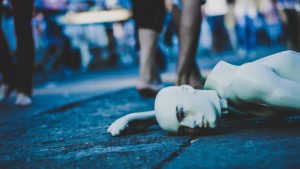
Photo by Edu Lauton on Unsplash
I am not a robot.
I’ve been seeking a new job because I want to start earning income again, but this time I promised myself I wouldn’t take a job that didn’t feel meaningful to me, and I knew exactly what I meant by meaningful. A meaningful job is not about the paycheck. Yes, obviously, I need money in today’s world. Not a lot, but some. Enough to justify my time, travel and commitment. However, the work I do in exchange for a paycheck of any size is only meaningful if it makes a positive difference in the lives of others. I don’t want to be paid for being a robot impersonator. I want to be paid because I contribute something wanted or needed out of my own authenticity.
Working as a member of a team in order to keep people safe, assist patients in rehabilitation, and teaching swimming feels meaningful and allows me to work from the heart. In my little corner of the world I can be part of something healthy and healing for myself and others.
As an ex-people-pleaser, I endeavored for most of my life to make a positive difference in the lives of my family and immediate connections. I worked as hard as I could at it, and making a meaningful contribution was my top priority. In spite of all my efforts, I failed. In fact, it seemed the harder I tried the more obnoxious I was to those around me. Naturally, I concluded that I was nothing. I had nothing to offer that anyone wanted. It would be better for everyone if I disappeared and relieved them of the burden of my presence.
Two important things I’ve learned from those years are people pleasing doesn’t work, and some people are determined never to be pleased. I learned to define for myself what a “good” job is. I began to seek paid work I enjoyed as much as volunteer work and kept my focus on the feeling of making a positive contribution.
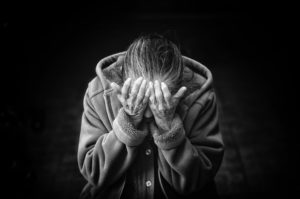
Photo by Cristian Newman on Unsplash
I see and hear a lot of discussion about the increasing problems of loneliness and depression, and I suspect many of those affected feel unable to make a meaningful, authentic contribution in their families and/or communities. Somewhere along the way we decided a paycheck is more important than the quality of our contribution, but ultimately, as human beings, no paycheck is an adequate substitute for feeling our contribution matters. Our culture does not necessarily reward authentic contribution. We like our infallible robots and good soldiers, those who do and say exactly what they’re programmed to do and say. Loose cannons like me are a problem nobody wants in the classroom or the boardroom.
I’m sorry I believed for so long I had nothing to contribute. It made me miserable and was the root of many destructive choices. Now I believe we all have a great deal to offer, and someone out there needs exactly what we can contribute. What would the world be like if every man, woman and child truly felt they had something unique to give that made a positive difference in just one other life? What if contributing and receiving contributions were not tied to money? What if we all woke up in the morning knowing the world is a better place because of our presence?
What would it take to make that a reality for everyone?
I’m fortunate to have found a way to make an authentic, meaningful contribution combined with a paycheck. Not everyone is able to do that. But everyone is able to do something. Plant a tree. Walk dogs living in animal shelters. Visit hospital patients. Assist in schools, day care facilities or retirement homes. Volunteer to answer a hotline. Buy a cup of coffee for a homeless person. Teach literacy.
Someone out there needs what we can give. Someone is waiting for us. All we have to do is go find them.
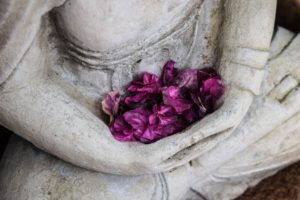
Photo by Chris Ensey on Unsplash
All content on this site ©2018
Jennifer Rose
except where otherwise noted
by Jenny Rose | May 24, 2018 | Emotional Intelligence, Feelings
Sometimes being a writer is a pain in the ass.
I had several ideas for this week’s post, but when it came down to it all I produced was something I didn’t want to think about, remember or write about at all. I tried to stop and go back to one of my original ideas, but no matter where I went I ended up in the same place.
I’m old enough to know it’s much easier to ride the horse in the direction it’s going, so I’m writing the damn thing, but I want you to know I’m resentful about it.
Two seeds contributed to this piece. The first is that my partner will be attending his fiftieth high school reunion this summer, and deciding whether or not to accompany him has been a thing for me.
The second seed is the latest (as of this writing) school shooting in Santa Fe, Texas, and the story about the girl (who was killed) who allegedly rejected the shooter and how that may or may not have been part of the motive.
I don’t know what happened between these two young people, of course. I certainly don’t believe everything I read. Perhaps the shooter was bullied. Perhaps he wasn’t. Maybe the girl simply said no, and some people interpret that as bullying. Maybe he refused to take no for an answer and the girl was trying to get the message across with ever-increasing force. I’ve been in a position like that myself. I don’t know, and for the purposes of this post it doesn’t matter.
I think we all can agree we have a problem with school shootings in this country, even if we don’t agree on causes and solutions. I also believe the data gathering, debate and problem solving around this issue is extremely important. Along with everybody else, I have my own opinions about how we got here and what we might do about it, but my opinion isn’t part of this post, either.

Photo by Alex Iby on Unsplash
The reason I’m writing about it (the shooting, one of the alleged triggers for the shooting, and the entire problem of school violence) at all is because of the way it makes me feel.
Sick. Sad. Scared. Angry.
These are the same feelings I’ve had about the entirely trivial decision about whether or not to attend my partner’s high school reunion.
My days in high school were a black time I’ve worked hard to forget. I led a strangely reversed life then, like a photographic negative. My real life was the volunteer fire and rescue work I was doing, my family (including many animals) and reading, the frame around the central core of school. The fire and rescue work often took place at night, of course, and I well remember the fellowship, the macabre hilarity, the practical jokes, and the heartbreak, terror and death we saw on the highway. There were impromptu middle-of-the-night meals at Denny’s after delivering a patient to the hospital, when we were stinking of gasoline and had glass splinters in the knees of our jeans. I was the baby, the youngest, but I was trained and certified and did everything I could to pull my weight.
It was the first time I ever felt I belonged anywhere, or was of any use to the world.
School days, by contrast, were endless bleak hours of clocks, bells, the metallic slam of lockers, figuring out what was necessary in order to maintain straight A’s (which thankfully did not involve much attendance in most cases), and fatigue.
I can’t remember eating a single school lunch in either junior high or high school. Isn’t that strange? I must have, but I have no memory of doing so, or of the cafeterias. What I do remember is the high school library, where there were rows of study carrels — remember those? They were 3-sided square boxes on the desks so that each student was cut off and private, in his or her own little undistracted and unobserved space. I had one particular favorite, the farthest away from the librarian and activity, out of sight, out of mind. It was where I slept. I wore an old hand-me-down men’s quilted navy blue coat that I cherished, and I wadded part of it up as a pillow, pulled the rest over my head and slept for long stretches through lunch and classes.
I was (and am) very organized. I knew what my teachers expected. I always showed up for tests and did all my homework. Papers and projects were planned and completed well before they were due. I did all the reading, homework and classwork. If extra credit work was available, I did that. When I could take AP classes, I did. I never ditched AP English, which I loved. I also went to Latin, another favorite. German was fun, too. I was never any kind of a problem, in class or out of it. Most of the time, I was numb with boredom.
I wished only to remain invisible and maintain a 4.0 grade average. The invisibility was for myself. The grade average was because it was expected of me, and it was easier to just do it than to rebel. Also, I wanted to be finished with school as soon as possible, and the quickest way out was to pass all my classes.
Most of the teachers and all of the students were alien species. I moved among them like a ghost, a wisp of fog. I hardly opened my mouth. I occasionally raised my hand in class for the teachers who required participation for an A, but I’d learned in grade school not to volunteer too many answers, even if I did know them. I dawdled over my tests so as not to be the first one finished. I took pains to keep most of the teachers at a distance so as not to be identified as a “teacher’s pet,” another lesson from grade school.
I was never bullied, though I saw and heard bullying every day. I was adept at blending in and attracting no attention, positive or negative. I didn’t hate the other kids. I didn’t think much about them at all. I didn’t hate the teachers. I even respected a couple of them. I was angry all the time, but it wasn’t focused on anyone in particular, and I only recognize it in retrospect. I didn’t blame the teachers, the kids or my parents for the hell I was in. It never occurred to me there was any other option. Everyone had to go to school, period. My parents were busy people with lives of their own. There wasn’t anything they could have done and I saw no point in whining and complaining.

Photo by Milada Vigerova on Unsplash
The school day was bracketed by a 40-minute bus ride morning and evening, and I did my homework on the bus, which effectively shut out the noisy horseplay, teasing and other socialization happening on it. I always chose a window seat somewhere in the middle and immediately set to work, never looking up from my notebook and books even if someone sat down next to me. If I had no homework, I read.
When I was a senior I finally learned to drive, somewhat unwillingly. I’d seen too much trauma on the highway by then to be enamored of driving. In the end, though, I learned and sometimes I drove our old Chevy truck to and from school, a battered tank of a thing that could cope with any kind of weather and wouldn’t crumple like a tin can at the slightest bump or ding. It was a faded brick red. If I had the truck, I abandoned the library and stretched out on the seat to sleep after parking on a quiet side street, cracking the windows and locking the doors. It felt very safe.
I do remember, as a great treat to myself, buying lunch in town when I had the truck, either at McDonald’s or a little health food store that made wonderful egg salad sandwiches.
Sick. Sad. Scared. Angry.
I remember one student I graduated with. One. I think I remember him because he was also a friend of my brother’s, who was a year behind me, and he was on the summer swim team with me. He was in my AP classes and became a scientist. He wasn’t a friend. He’s just the only one I remember.
On the other hand, I remember the fire station very well, and the rescue barn. I remember the smell of exhaust from the ambulances and big trucks. I remember the little offices where the phone and radio sat on the counter. I remember the meetings, the folding chairs, the scarred tables and the pancake breakfasts. I remember the battered coffee urns and the stained sinks, the water fights, the endless and hilarious practical jokes, the laughter, the weekly meals at the local diner, the parties, the trainings and the people. I later married two of the men I volunteered with in those days (not at the same time, of course!) I remember running up and down ladders for training, the impossible weight of portable water pumps (we called them Indian pumps) for fighting brush fires, the eerie sight of burning trees crowning in a blossom of flame against a dark sky and watching a house burn to the ground. I remember the sour smell of cooling “hot spots” after a brush fire. I remember the live feeling and weight of a charged firehose, enough to knock me over, and the way it peeled the shirt off you during a water fight.
For this treasured, meaningful part of my life, though, there was no acknowledgment. Rather the reverse. It wasn’t quite nice, a teenage girl running around with a bunch of older boys and rowdy, often bawdy volunteers, never mind that I took First Aid, CPR, EMT and IV training and loved it all. It also meant I occasionally showed up in the company of the police at wild parties where someone got hurt or overdosed, which did not endear me to my high school peers. Not to mention that the first dead body I ever saw happened to be one of my schoolmates. I’ll never forget the broken-doll look of him as he lay on the highway, broken glass glittering in his hair under the emergency lights. The only reason it was possible for me to do that work was that my mother did it too. She was quite a good paramedic, in fact.
My experience with high school took place in the late 70s and early 80s. We had a completely open campus. Certainly, things are different now in terms of security, at least. I wonder, though, how many kids are sitting in public schools across the country this very minute who are largely unseen, unheard and simply trying to survive.
Every time a shooting happens we get hours and hours of interviews, social media posts and videos of parents, teachers and students and their perceptions of the perpetrators, and I always wonder — did anyone, does anyone, can anyone really know their student, brother, son, teammate or classmate? How well does a high-school-age kid know him or herself? How much perspective can they have, how much experience in the amazing ways life can change over time? What has been their experience of connection with themselves and others? What is the level of their willingness and ability to communicate? Have they ever, in their whole lives, been given a reason to believe asking for help or telling the truth is useful, rather than making everything much, much worse?
My family cared about me. I remember going to counseling once or twice, both in school and out of it. Do you know what happens to kids who get in-school counseling? They get pulled out of class, right in front of God and everyone. Every single student and teacher in that class knows where they’re going. Not exactly a help when you’re trying to remain invisible. Also, the counselors are just as worn-out and frayed as all the other adults in a school, with an endless array of troubled kids, emergencies, difficult or distraught parents, and they’re trying to support the teachers as well. I was ashamed to be part of their burden and take up any of their time.

Photo by John Salvino on Unsplash
We say some of these at-risk kids who become shooters are identified and “in the system,” and I think many components of “the system” have an honest desire to make a positive difference and work usefully with young people. That doesn’t mean the young person is able to avail him or herself of the support, though. I trusted no one at that point in my life. I wouldn’t have ever told the truth about my private thoughts and feelings. I’d already learned the danger of rocking boats, and I also knew I was privileged because I was smart, we were comparatively wealthy and I had a family that loved me. I had nothing to complain about, and I didn’t. Nothing would have induced me to shame my parents and my extremely intelligent, talented and much more normal and attractive younger brother.
Now, thirty years later, kids are dying, and teachers, and school staff, as well as an occasional parent. We’re trying to understand. Some are trying to find someone to blame, as though that fixes things. But the parents of the shooters aren’t killing these kids. Neither are teachers or security personnel. Bullies and peers aren’t killing these kids. “The system” isn’t killing them, either, or the NRA. The one who pulls the trigger is the killer. I think it’s important to be clear about who’s ultimately responsible. The question is, what came before the trigger was pulled? What are all the intricacies and complexities leading to that moment of choice, and how do we begin to explore that terrain without the input of the shooter, who might or might not survive, and if alive, might or might not tell? If we can ever fully understand, how do we make changes in the roots of parenting, emotional intelligence (or lack thereof), public education (so-called), and our culture’s broken sense of connection and ability to be authentic?
If my school records could be magically produced, what would they show? Straight A’s. Honors student. Maybe a counseling note or two: Isolated, frequent absences, no behavior problems, no sign of abuse or cutting, not a danger to self or others,
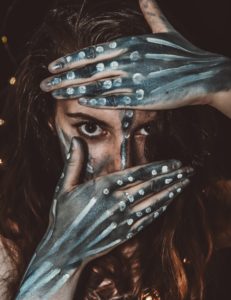
Photo by Joshua Fuller on Unsplash
People, that’s a paper doll, not a person. I’m smarter than most people I know. If I’d been a danger to self or others (and I was a certainly actively suicidal), do you think I’d have told anyone? Come on. I know we have social media now, but how much of what shows up on a teen’s social media is Truth? Teens compete, exaggerate, dramatize and make stuff up, just like the rest of us. Often there are clues, but they’re a lot easier to see after the fact, and that’s not much help, is it? It takes years to develop self-knowledge and insight, even if we’re willing to.
Sick. Sad. Scared. Angry.
I’m a parent. When my two sons were teenagers, I worked at the same school they attended. It was a small school and I knew every student, every staff member and most of the parents. I had a whole reality in my head about who my kids were and how they were doing. I loved them with my whole heart. I absolutely trusted them. I frequently knew when they were ditching school, smoking weed or leaving the house in the middle of the night. I didn’t bail them out of consequences or micromanage them. I was a single mom, working desperately hard to keep us afloat and trying to deal with my own experience.
I knew I wasn’t okay, but I wanted to believe they were. I was doing the best I could, loving them as hard as I could and making sure they knew it.
They did know it, just like they knew I wasn’t okay. They weren’t okay, either, but they knew I was doing my best, they didn’t want to burden me and they didn’t really know what they needed for things to get better anyway. Exactly the same position I’d been in two decades earlier.
The truth is, given the right circumstances, either of my boys could have been victims — or shooters. So, in fact, could I. That’s a hard thing to believe and a harder thing to write, but it’s true. Every single one of us has a snapping point, whether we admit it or not. High school can be a place of prison and torture, a place of no hope, an infinite incarceration, a daily experience of humiliation or fear. It can be a nihilistic experience, a daily exercise in powerlessness, in making oneself small, in concealment, in survival.
Sick. Sad. Scared. Angry.
And then there’s the other side of high school. Some amazing people in every class go to endless work and trouble to keep track of their classmates and plan and organize class reunions. For someone like me, this is both astounding and appalling. When my partner told me about his reunion this summer and asked me to come with him, it took me a minute to understand he was serious. Sure, and then can we go get our legs chopped off with a dull blade? Please, oh please?
But I know many people have great memories of clubs and sports teams, teachers and classes, proms and homecomings. My partner has lifelong friendships from high school. Imagine it, 50-year-old friendships! I met my closest friend when I was 30. What would it be like to have that kind of history with another person, that kind of intimacy? What would it be like to know someone liked you enough to be friends with you for 50 years?
Sick. Sad. Scared. Angry.
High school. Guns and reunions. Looking for quick, inexpensive, politically attractive fixes. Heated debates. Demonstrations and walk-outs. Active shooter drills for schools and law enforcement and mass trauma drills for hospitals. Blameshifting, fear, mistrust, profiling. Blood, vigils, funerals and graves. Bullying, mental illness and lasting trauma. Lost kids. Disconnected kids. Dead kids.

Photo by Cristian Newman on Unsplash
The cacophony of debate, press conferences, social media, opinions, interviews, political maneuvering, nonstop news feeds and raw videos goes on and on, and somewhere in the center of the maelstrom is the core of the problem — the young people who shoot, who die and who witness. Some of them have been swept into the hurricane, but I wonder how many are simply sheltering in place, trying to survive another bewildering, hopeless, pointless day of tech, teachers, rules, grades and peers. I know they’re there, because I was one. They could tell us a lot about futility, despair and disconnection. They’re keeping painful secrets. Are we willing to hear their truth? Do we deserve their trust? Do we have time or energy for them? Can we change anything for the better? Or would we tell them to get over it, that everyone has to do things they don’t want to do, that high school will be over one day? Do we paste a neat label on them and write a prescription? Do we insert them into a “system,” because that’s the best we have, and turn away to deal with our own jobs, responsibilities, stresses, scar tissue, labels and prescriptions?
I’m back where I started.
Sick. Sad. Scared. Angry.
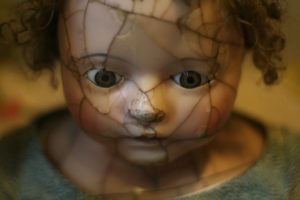
Photo by Aimee Vogelsang on Unsplash
All content on this site ©2018
Jennifer Rose
except where otherwise noted
by Jenny Rose | Mar 8, 2018 | Choice, Power
Selchie: A mystical creature who takes the form of a seal in the sea and a human on land.
I have a picture book from my childhood called Greyling, by Jane Yolen. It’s one of my favorite stories, by one of my favorite authors, and I’ve told it as an oral storyteller for many years. When I began doing storytelling, I sought out all the selchie stories I could find and incorporated them into my programs.
I rarely tell a selchie story without fighting back tears.
I’ve lately revisited this wonderful material for the second book in my Webbd Wheel series, and it occurred to me to explore why these stories touch me so painfully and deeply.
Selchie stories appear in the Hebrides, Iceland, Orkney, Scotland, Ireland and the Faroe and Shetland Islands. Like all lasting oral traditions, they contain blueprints for navigating loneliness, exile, love, loss, competition, compassion, trust and power. A good story has many facets.
A common thread in selchie stories is that a seal comes to land, takes off its skin, and becomes human, usually a beautiful young woman. Subsequently, the skin is stolen by a man and the woman entrapped. In many of the tales, she marries the man who has her skin (always a fisherman) and bears his children. Sometimes her husband promises after a certain number of years he’ll allow her access to her skin again, but he doesn’t follow through for fear of losing her. Inevitably, the skin is found, often by a child, and returned to the selchie, who must then face a choice between her life with her family and her life in the sea.

Photo by Jeremy Bishop on Unsplash
It is this choice that makes me weep. I know the agonized longing for what we are made of but can’t ever quite find.
As I observe the world and people around me, I think many of us feel in some way exiled from who we were born to be, from a place, from a tribal connection, from some integral expression of self. I believe this exile creates such an unbearable hunger we grasp at anything within our reach in order to appease it, becoming addicts, developing eating disorders and body dysmorphism, and struggling with anxiety and depression. We live in a culture of distraction and entertainment. We’re busy, noisy, exhausted, and inundated with information, stimulation, propaganda, manipulation and demands.

Photo by Anna Dziubinska on Unsplash
We want what we are made of, but how do we find what that is? Why is it taken away or withheld from us? Why are we so often forced to choose between one thing we’re made of and another? This all lies at the heart of selchie stories, for the selchie is a creature torn between two worlds and two tribes, and we instinctively recognize this conflict.
Choice is so often grief. If a selchie re-dons her skin and goes back to the sea, she cannot return, for she already knows the terrible cost of losing her skin, and though she may love her children and even have grown to love the fisherman she’s with, she cannot trust him. In returning to the sea, she is joyous, but now the grief of leaving her children and the life she made on the land replaces her longing for the sea.
I was with a man who avoided choice. He said he didn’t like to choose one thing in case something better came along. My experience of this was that he didn’t want to commit. It meant we couldn’t plan a date, a weekly ritual or even a walk. If we did, he frequently cancelled at the last minute. It was painful for me, and it frayed our connection considerably as I vacillated between hurt and anger. Eventually, I gave up and made my own plans. I told him that his maybe-I-will and maybe-I-won’t approach didn’t avoid a choice but was a choice. He refused to take responsibility for that, and he was bitter about the choices I made subsequent to his.
I’ve also been with partners who believe we can have it all. One man walked away from any situation in which he couldn’t have his cake and eat it too. It was a point of pride with him. He didn’t see why he shouldn’t have it all, and, as far as he was concerned, the world (and I) owed him that. Looking back, I see this as just another evasion of the heartbreak and consequences of having to make choices.
I think very few of us have the luxury of having it all. We come together and move apart, searching, fleeing and climbing ladders we hope end in success. Many of us feel rootless in terms of place and tribe. We don’t really feel we belong anywhere on a map, and we have no rightful place in a human circle. We do the best we can, a choice at a time, and over the years those choices and their consequences teach us who we are and turn us into adults.
What we’re made of is not necessarily what we’re born into. What we’re made of is not necessarily the place we live in, the people surrounding us, the job we have, the clothes we wear, the car we drive or the color we dye our hair. What we’re made of is not always who we want to be, who we insist we are or who we’re expected to be. Discovering what we’re made of is an excavation of our dreams, our souls and our joyous bodies. Many of us spend our whole lives finding one piece of ourselves at a time, stumbling, groping, picking up and discarding, searching blindly in the dark with nothing but our feelings to guide us.
On one particular day of no special consequence, my small toddling self, clothed in a yellow bathing suit with white trim, was lifted into a pool of water as big as the sea. From that day to this I’ve loved the water, and during occasional long, dry spells without access to swimming I dream of water and wake myself weeping with the anguish of my longing.
I’m a creature of water. It’s part of what I’m made of.

Photo by Nathan Anderson on Unsplash
For some years I lived in a city and laid awake at night watching headlights move across the ceiling and walls, straining to hear a precious moment of silence in between the sound of cars and sirens and too many restless people moving through the pale night. I dreamed of high, snow-covered mountains under starry skies and the peace of trees in unbroken darkness. Every day I died a little more, but I knew in my heart one day, one day I would leave the city and live in the shadow of the mountains I dreamed of. A thousand nights later I freed myself from the tentacles of that city, but I also left behind my marriage and the father of my children, my belief in happy-ever-after, the most lucrative job I ever had and the good wife and mother I wanted so much and tried so hard to be.

Photo by Ryan Hutton on Unsplash
At last, I slept in the shadow of snow-covered peaks in a small mountain town without pavement and street lamps and sirens. When I awoke at night, I heard the cry of the vixen, the rushing wind, the owls calling to one another, the sound of the bear eating apples from the tree outside my window, or the raccoons cavorting in the tops of the pear trees like furry pirates.
I did not have it all. I had another piece of what I’m made of. I chose it, and I paid for it. I’m still paying for it, twenty years and thousands of miles later, and whatever the cost, it’s worth it. I cannot live in the city.
By the time my life is over, will I know everything I’m made of? Will I have lived with enough courage to choose what I’m made of, come what may? Will living true to what I’m made of sustain me? Will I ever find my own sealskin wedged between rocks, or locked away in a chest, or hidden in the thatch?
Reclaiming what I’m made of, one choice at a time. My daily crime.
The selchie lives in a small cottage on the shingle beside the sea. She lives with a fisherman whose face is carved with a lifetime of loneliness that she has relieved. She and her children gather seaweed and driftwood, mend nets and dry fish and watch for the fisherman’s return, lighting a lamp and setting it in the window to welcome him home in the evenings. She lies with her man at night and listens to him sleep, and the waves come in, and the wind sighs through the beach grass, and she thinks of her sea kin and wonders how it is with them and if she’ll ever see them again.

Photo by Kace Rodriguez on Unsplash
The selchie takes the folded sealskin from her child and holds it to her breast, weeping, smelling its fading perfume of fish and sea, rubbing its softness against her cheek. She tells her children she loves them, but she must leave, and they clutch at her hands and her skirts, crying, not understanding what is happening. She tells them they will see her again, but in a different form. She cannot stop to explain, lest the fisherman return and her chance for freedom is lost. She stumbles out of the house, casting aside her clothing as she goes, until she stands naked in the surf and steps into the skin. The children follow, stricken and wailing, pleading with her not to leave, but her need for what she is made of is even greater than her love for them, and the surf takes her gladly in its embrace and carries her out. She looks back one more time, her great, dark eyes full of tears, before she dives into the arms of what she is made of and disappears.
All content on this site ©2018
Jennifer Rose
except where otherwise noted
by Jenny Rose | Oct 26, 2017 | A Flourishing Woman, Mind
I went to the dentist last week. I spent the usual hour with the hygienist and then the dentist breezed in to give me four or five minutes of exam, comment, teaching and friendly conversation. Thankfully, I don’t require more than this, as my teeth are in excellent shape. In the course of those few minutes, I used the term “permaculture,” and he asked me what it was. I gave him a brief answer, and on the way out the hygienist said I had a “high dental IQ.”
“She has a high IQ, period,” he responded as he left.
I almost got out of the chair and went after him to explain that I’m the dumb one in the family, and certainly don’t have a high IQ.
As I’ve gone about life since then, I’ve thought a lot about that interaction. I’ve also been feeling massively irritated, isolated and discouraged. This morning I woke out of a dream of being in a closet groping for my gun, my knife, even my Leatherman, absolutely incandescent with rage, because a man outside of the closet was having a dramatic and violent meltdown, intimidating everyone present because of something I’d said or done that he didn’t like.
I wasn’t intimidated. I was royally pissed off.
When I had my weapons assembled, I stormed out of the closet and came face-to-face with a clearly frightened woman who was wringing her hands and making excuses for the behavior of the yelling man. I screamed into her face that he could take his (blanking) opinions and shove them up his (blanking blank) and unsheathed my knife, not because of her, because of HIM.
I woke abruptly at that point and thought, I’m not depressed, I’m MAD!

Photo by Nicole Mason on Unsplash
While I showered and cooked breakfast I sifted through IQ and conformity and cultural and family rules, economic success and failure, work, invalidation and silencing and keeping myself small. I thought of how pressured I’ve always felt to toe the line, be blindly obedient, follow the rules, ask no questions and be normal. Normal, as in compliant, and refraining from challenging the multitude of life’s standard operating procedures that “everyone knows.” Normal, as in not daring to resist, persist, poke, peel away, uncover. Normal, as in never, NEVER expressing curiosity, a thought, an experience, a feeling or an opinion that might make someone uncomfortable. Normal, as in never admitting that the way we’re supposed to do things doesn’t always work for me, and frequently doesn’t appear to work for others, either. I slammed around the kitchen, turning all this over in my mind, letting the bacon burn, and finally pounced on a keystone piece to write about.
What does it mean to be smart? Why do I feel like a lying imposter when someone makes a casual comment about my IQ? Why is IQ even a thing? Why does so much of my experience consist of “sit down and shut up!”?
Intelligence is defined on an Internet search as “the ability to acquire and apply knowledge and skills.” Please note the absence of any kind of test score in that definition. Likewise, there’s no mention of economic status, educational status or social status. Also, this definition says nothing about intelligence as a prerequisite for being a decent human being.
The definition takes me back to the playing field in which I wrote last week’s post on work. Here again we have a simple definition for a word which is positively staggering under assumptions and connotations.
Fine, then. I’ve explored what work means to me. What does intelligence mean to me?
Intelligence means the ability to learn, unlearn and relearn. Good learners do not sit down and shut up. We question, and we go on questioning until we’re satisfied with answers. We try things, make hideous mistakes, think about what went wrong and apply what we learned. We don’t do the same thing over and over and expect a different result. We exercise curiosity and imagination. We pay attention to what others say and do and how it all works out. We pay attention to how we feel and practice telling ourselves the truth about our experience. After a lot of years and scar tissue, we learn to doubt not only our own assertions, beliefs and stories, but everyone else’s as well. We practice being wrong. We become experts in flexible thinking. We adapt to new information.
We give up arguing with what is.
Intelligence endures criticism, judgement, abuse, taunts, threats, denial and contempt. It’s often punished, invalidated and invisible. Intelligence takes courage.

Photo by Cristina Gottardi on Unsplash
Intelligence is power. It does not sit at the feet of any person, ideology, rule or authority and blindly worship. It retains the right to find out for itself, feel and express its own experience, define its own success, speak its truth in its own unique voice, and it remembers each of us is limited to one and only one viewpoint in a world of billions of other people.
Intelligence is discerning the difference between the smell of my own shit and someone else’s.
For me, intelligence is a daily practice. It’s messy and disordered and fraught with feeling. It means everything is an opportunity to learn something new. Everything is something to explore in my writing.
I have no idea what my IQ is, and I don’t much care. I’m sick and tired of all the family baggage I’ve carried around about who’s smart and who isn’t and how we all compare. Honestly. What am I, 10 years old? Enough, already.
I’m also fed up with being silenced, and in fact I’ve already refused to comply with that, as evidenced by this blog. I understand a lot of people don’t want to deal with uncomfortable questions. Too bad. Those folks are not going to be my readers. It’s not my job to produce sugar-coated bullshit that can’t possibly threaten or disturb anyone.
So there it is. The practice of intelligence.
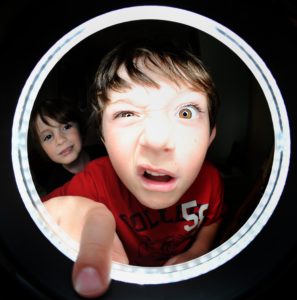
Photo by frank mckenna on Unsplash
All content on this site ©2017
Jennifer Rose
except where otherwise noted

















